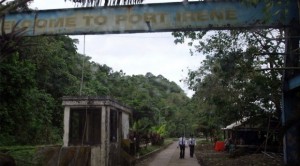Cagayan car traders cry foul: What seizure?
BAYOMBONG, Nueva Vizcaya, Philippines—A group of car importers based at Port Irene in Cagayan province protested on Saturday statements made by the Bureau of Customs which they said portrayed them as car smugglers.
Jaime Vicente, president of the Automotive Rebuilding Industry of Cagayan Inc. (Aric), described as “malicious” the BOC’s insinuations that they had tried to sneak out imported vehicles from the Cagayan Special Economic Zone and Freeport in Santa Ana town.
“What is most lamentable are insinuations that the BOC has confiscated the 38 units for which we have filed for import entry. There appears a clear attempt to give the public the impression that the vehicles were ‘intercepted’ while these were being illegally brought out of the port,” he said in a statement.
Vicente was referring to an announcement by Customs Commissioner John Phillip Sevilla at a press briefing on Friday, 10 days after BOC agents at the Aparri collection office issued warrants for the seizure of 38 assorted vehicles presented for acceptance by Fenix (Ceza) International, one of the licensed used car importers at the free port.
The 38 units were among 347 vehicles that comprised a Dec. 14 shipment from Japan, the import documents of which, Vicente said, were completed before Sevilla’s order to stop the processing of all used cars imported through the free port.
Article continues after this advertisementIn media reports, the BOC was quoted as claiming to have “thwarted an attempt to illegally take the vehicles out” of the Cagayan freeport.
Article continues after this advertisementBut that is “farthest from the truth,” Vicente said.
“The imported vehicles have not moved, even a single inch, from where they were originally stored since they arrived at the port. If indeed these were being smuggled out of the free port, then they [at BOC] should have been able to arrest the drivers, physically seize the vehicles, have their photos taken and present these to the media,” he said.
He said Fenix filed the import entry “in good faith, in order to place the vehicles within the jurisdiction of the BOC.”
This allowed the bureau, Vicente said, to choose between two courses of action: To continue abiding with Executive Order 156, which imposed a partial ban on the importation of used vehicles, or follow the ruling of the Supreme Court that affirmed the validity of EO 418, which allowed used-car importation with modified tariff rates.
“Since they opted to follow the first option, their natural course of action was to issue a warrant of seizure and detention order. While we disagree with the position they took, we nevertheless respect it,” he added.
But the BOC, Vicente said, should also respect the position that car importers have taken in filing the import entry because the issue remains pending in court.
He was referring to the petition filed by Forerunner Multi-Resources Inc., which questioned the constitutionality of EO 156 and remained pending in the Court of Appeals.
“If the BOC believed that the case has been resolved, why do their lawyers continue to appear in that [Forerunner] case?” Vicente asked.
Sought for comment, Leilani Alameda, acting BOC collector in Aparri, clarified that no confiscations were made, contrary to what was reported in the media.
“To be fair, there was never any movement of the vehicles. We just issued the warrants of seizure and this was accepted by Fenix representatives. There were no interceptions or attempts to sneak the vehicles out of the free port,” she said.
Alameda said they were awaiting instructions from Sevilla on whether the vehicles will be taken out of the yard in Casambalangan village in Santa Ana, where they were being held following the issuance of warrants of seizure.
